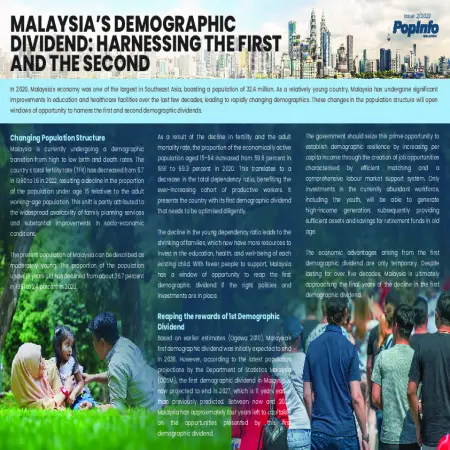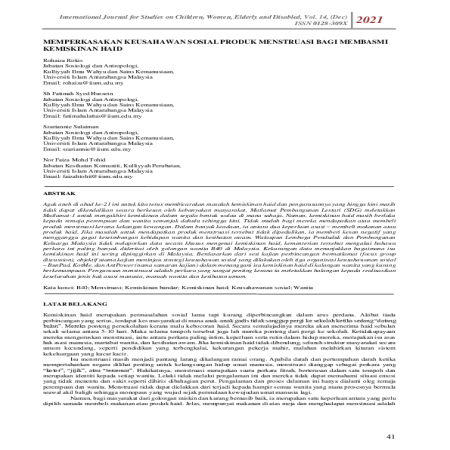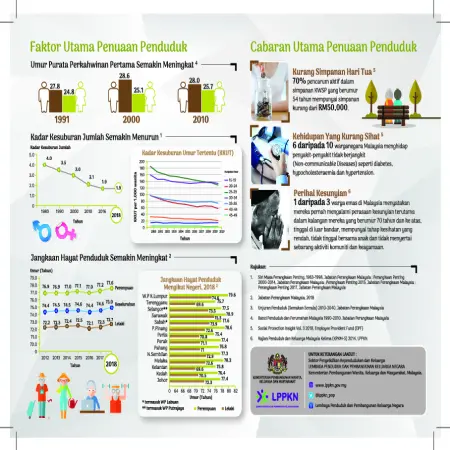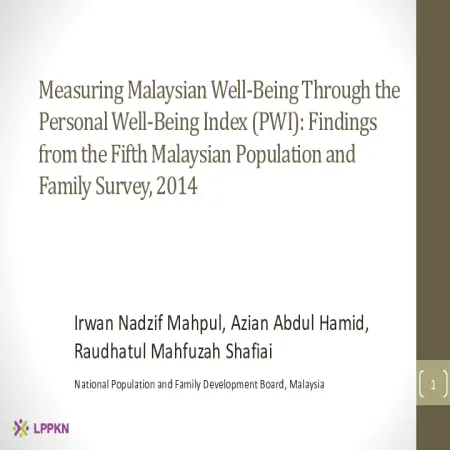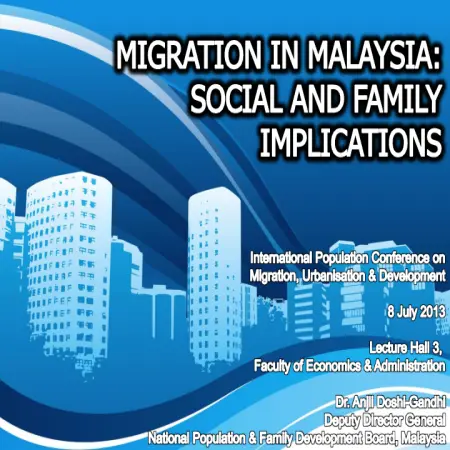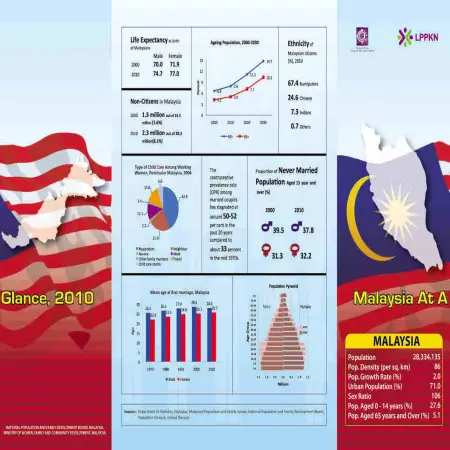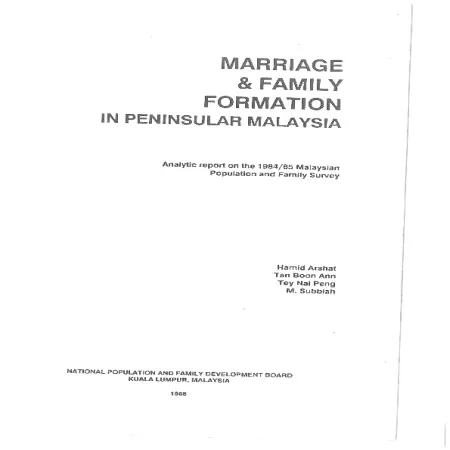TOPICS
Results for Topics : "Population"
|
|
Malaysia's demographic dividend: harnessing the first and the second
Item Type: Newsletter
Editor:
Year: 00/12/2023
Abstract: In 2020, Malaysia's economy was one of the largest in Southeast Asia, boasting a population of 32.4 million. As a relatively young country, Malaysia has undergone significant improvements in education and healthcare facilities over the last few decades, leading to rapidly changing demographics. These changes in the population structure will open windows of opportunity to harness the first and second demographic dividends.
|
|
|
|
|
|
Memperkasakan keusahawan sosial produk menstruasi bagi membasmi kemiskinan haid
Item Type: Article
Editor:
Year: 00/12/2021
Abstract: The Sustainable Development Goals (SDGs) set Goal-1 to end poverty in all its forms everywhere. However, menstrual poverty still happens to teenage girls and women from the past until now. It is not easy for them to get or buy menstrual products due to financial constraints. Based on a focus group discussion research session, the main objective of the study is to review the social entrepreneurship strategies carried out by three social entrepreneurship organizations – BunPad, KotMe and AntPower (pseudonym of the study) in dealing with the issue of menstrual poverty among underprivileged women.
|
|
|
|
|
|
Malaysia negara tua 2030
Item Type: Infographic
Editor:
Year: 00/12/2018
Abstract: This infographic shows about the main factors and challenges of aging in Malaysia. According to the United Nations (UN) definition, senior citizens are among those aged 60 and above. This definition was introduced during the “World Assembly on Aging” held in Vienna in 1982. In recognition of the elderly, the UN through Resolution No. 45/106 has also declared October 1 as International Senior Citizens Day. In Malaysia, the National Senior Citizens Day celebration has been celebrated on October 1 every year since 1992.
|
|
|
|
|
|
Measuring Malaysian well-being through the personal well-being index (PWI): findings from the fifth Malaysian Population and Family Survey, 2014
Item Type: Conference or Workshop Item
Editor:
Year: 00/00/2015
Abstract: The aim of this study is to measure the well-being of Malaysian population through the use of PWI scale developed by the International Wellbeing Group (IWbG). Responses on the PWI scale were collected from over 10,000 adults aged 18 to 59 drawn from a sample of 18,852 living quarters throughout the country. Through the MPFS-5, the Personal Well-Being Index for the Malaysian was recorded at 7.71 out of a maximum score of 10. Out of the eight domains identified, the Spirituality or Religion domain recorded the highest score of 7.56. It then followed by the domain scores of Personal Relationships (7.54), Community-Connectedness (7.52), Personal Safety (7.35), Personal Health (7.10), Future Security (6.96), Standard of Living (6.58) and Achieving in Life (6.56).
|
|
|
|
|
|
Migration in Malaysia: social and family impact
Item Type: Conference or Workshop Item
Editor:
Year: 00/00/2013
Abstract: This paper highlights the key findings from surveys done by the Ministry of Women, Family and Community Development (MWFCD) and the National Population and Family Development Board (NPFDB). The Survey on the Implications of Employing Foreign Domestic Helpers (FDH) on the Family Institution in Malaysia was conducted by the MWFCD in 2009. The study found that many families rely on FDH for child care and domestic work. Some of the families find that having a FDH has a negative effect on their family relationships while some have no problems with it. The study on Indonesian Migrants in Tawau, Sabah conducted by the NPFDB in 2010 found that the local community in Sabah felt that the presence of Indonesian migrants in their community had both positive and negative effects. The effects of migrants were studied from the perspective of economy, education, health, safety, culture, housing and neighbourhood.
|
|
|
|
|
|
Malaysia country report at 4th East Asia Ministerial Forum on Families, "Safe and resilient families: protecting and empowering at-risk and high risk families", Kuala Lumpur, 7-10 November 2010
Item Type: Country Statement
Editor:
Year: 00/00/2010
Abstract: Malaysia recognizes the family as a natural and fundamental
social unit that provides valuable human resource and forms the
backbone for solidarity, security and nation building. Malaysia
believes in the importance of family development in line with the
objective of creating a caring society ; Family is PRIORITY NO. 1
|
|
|
|





